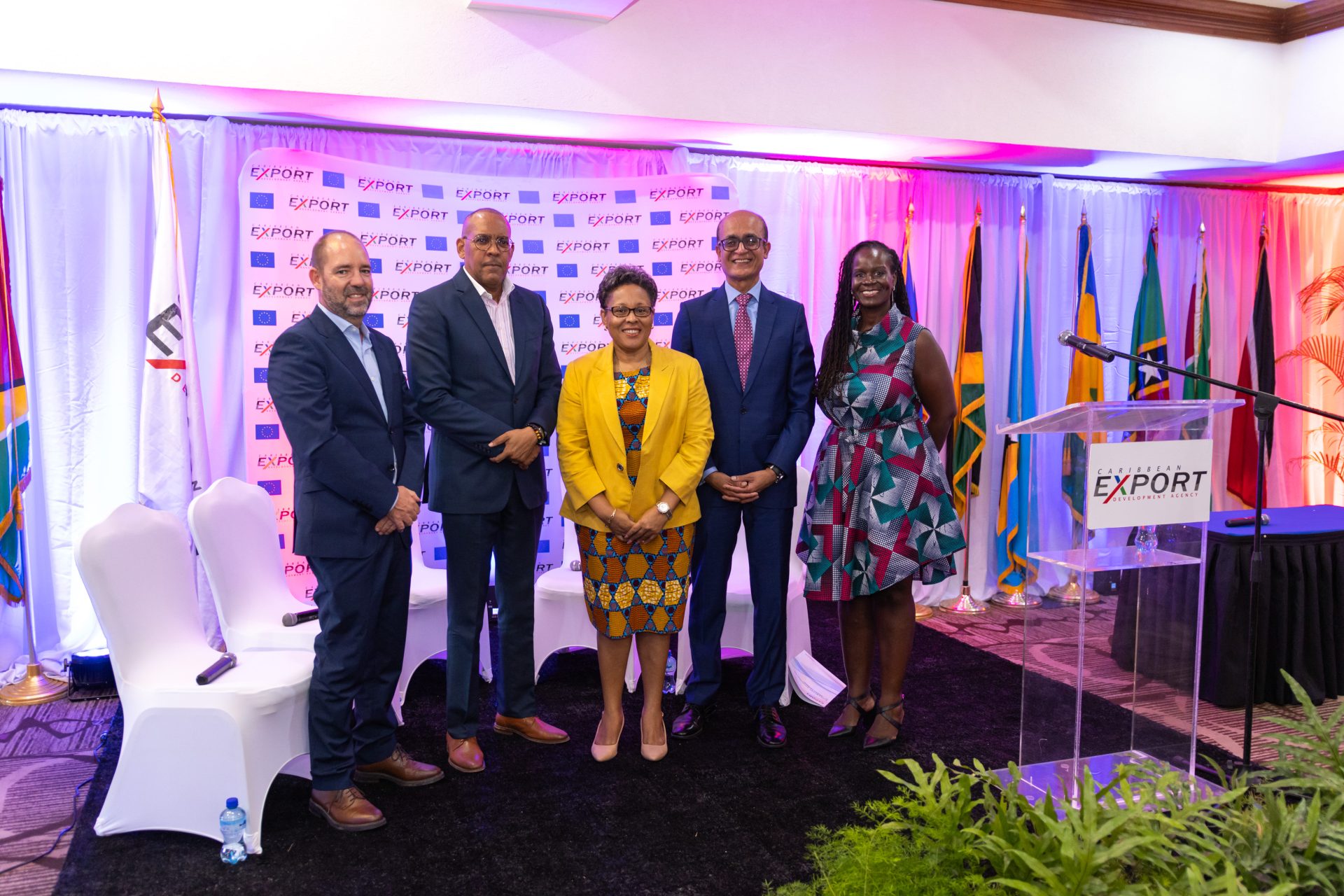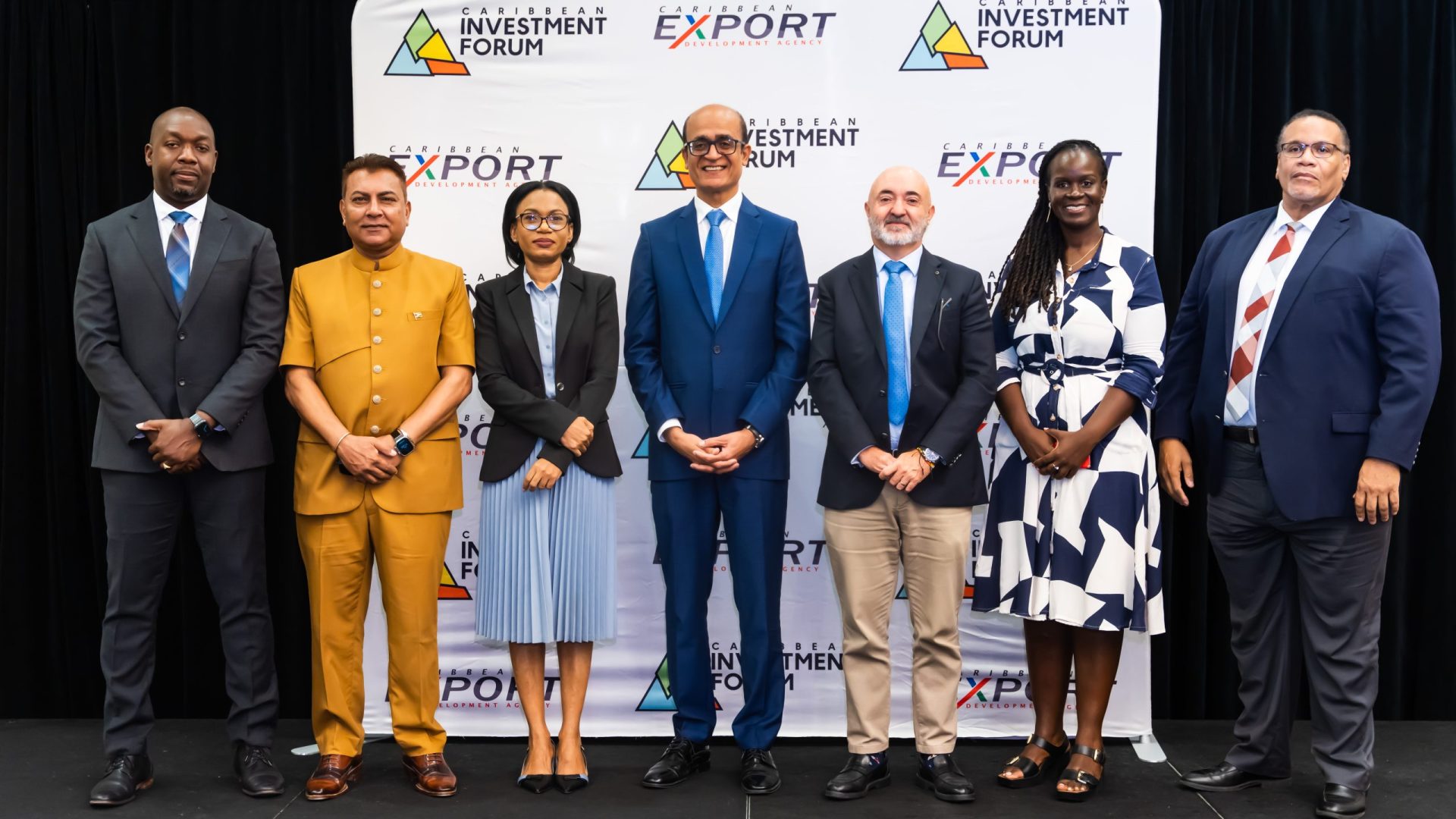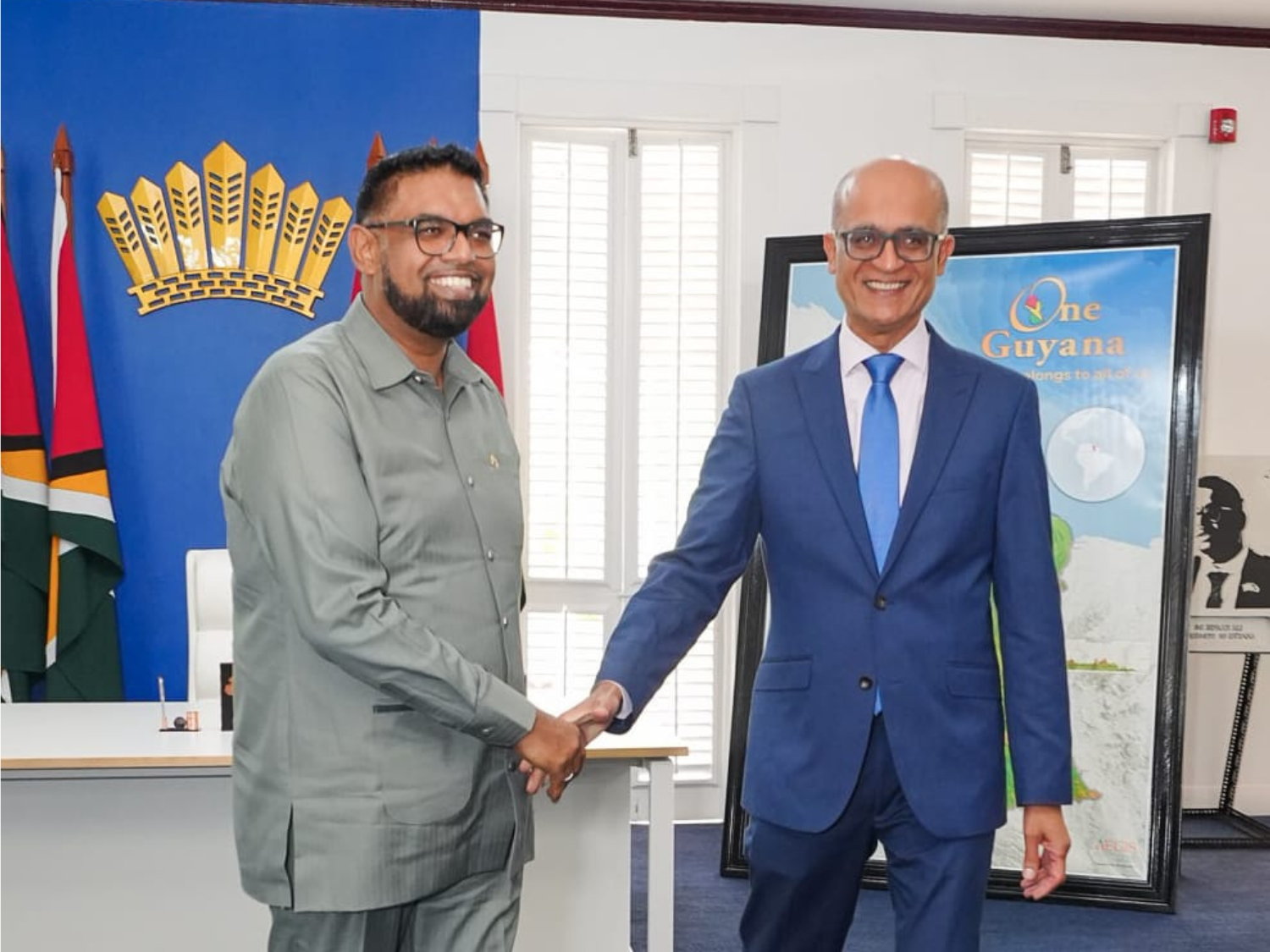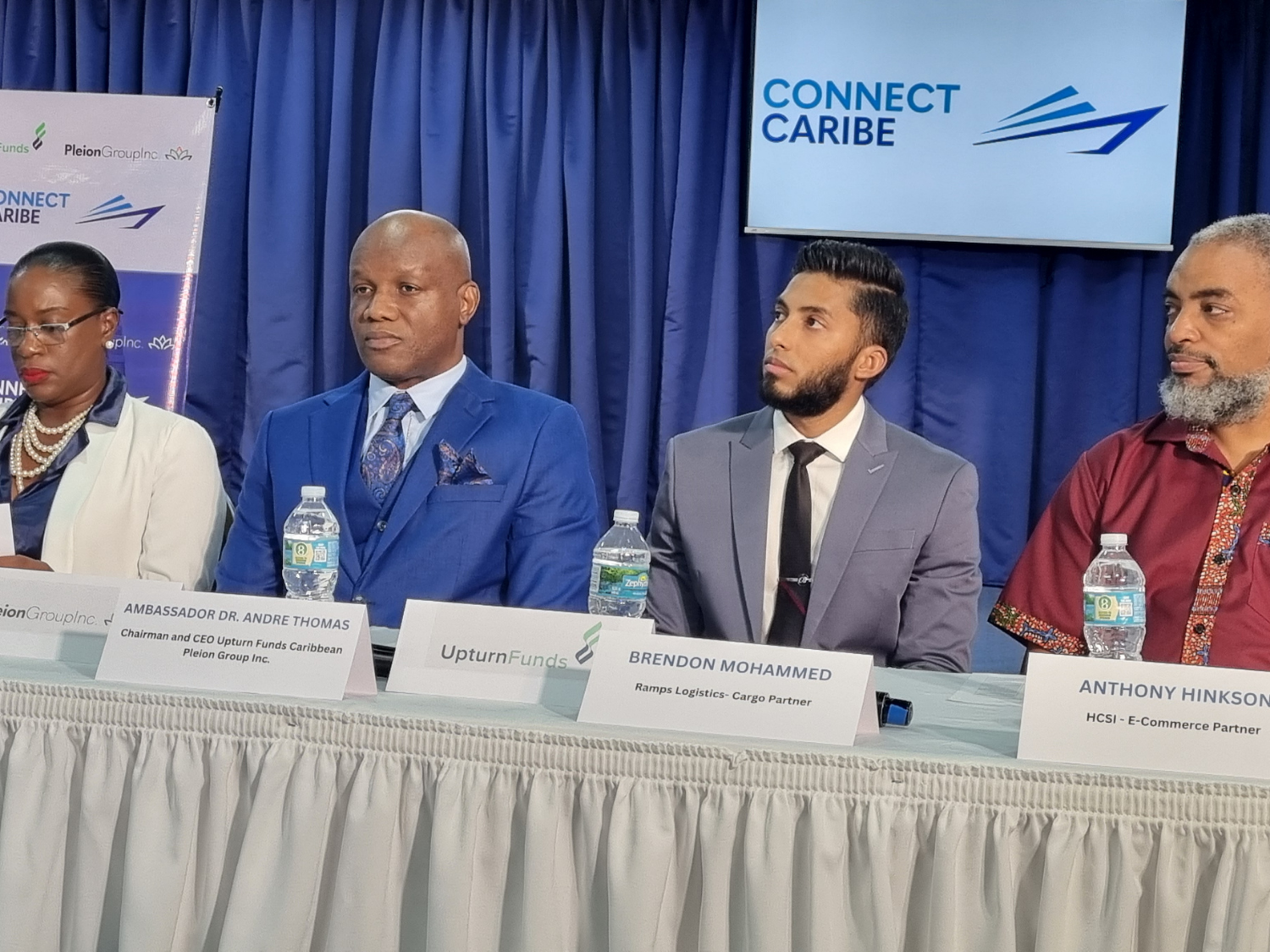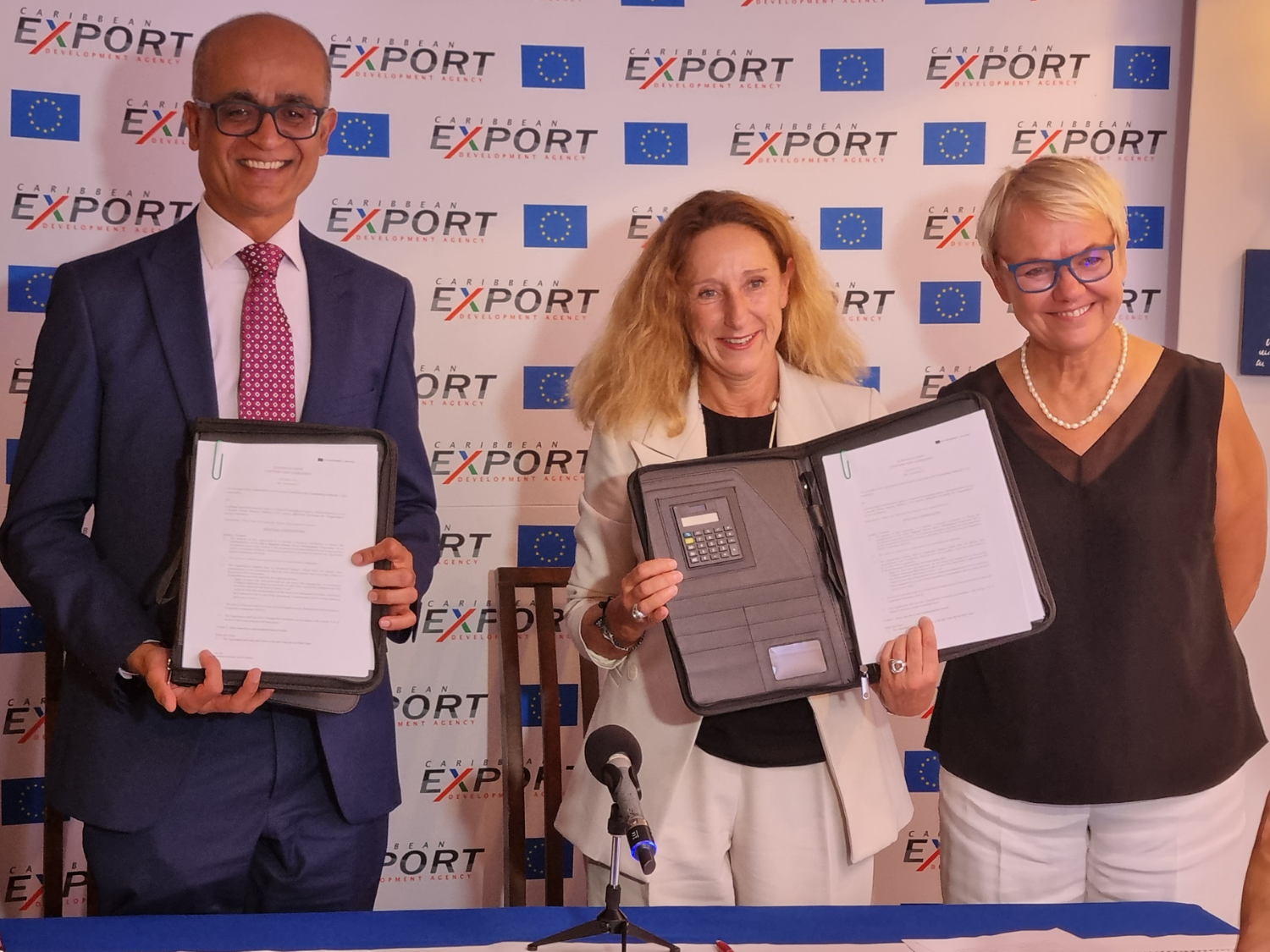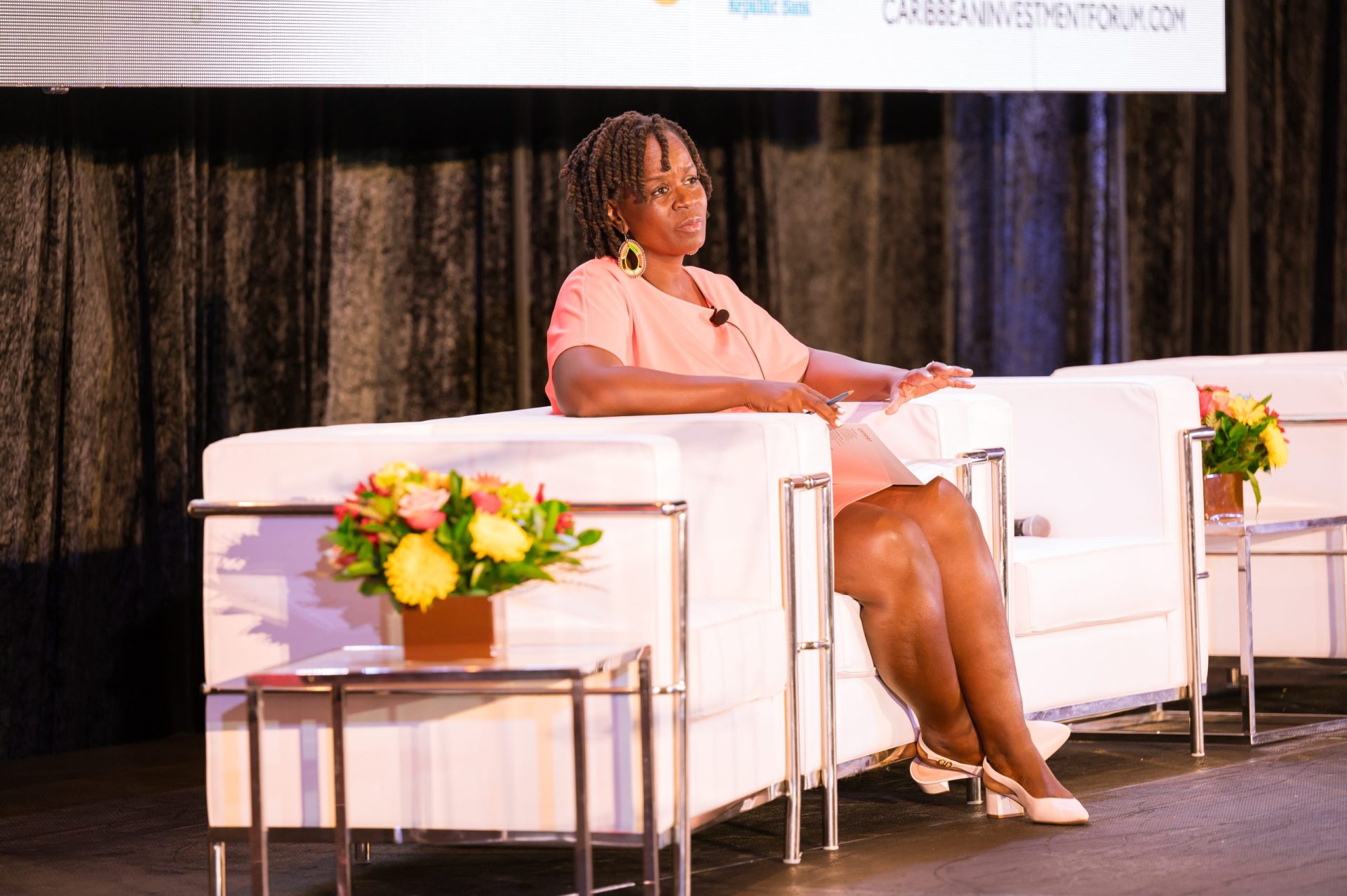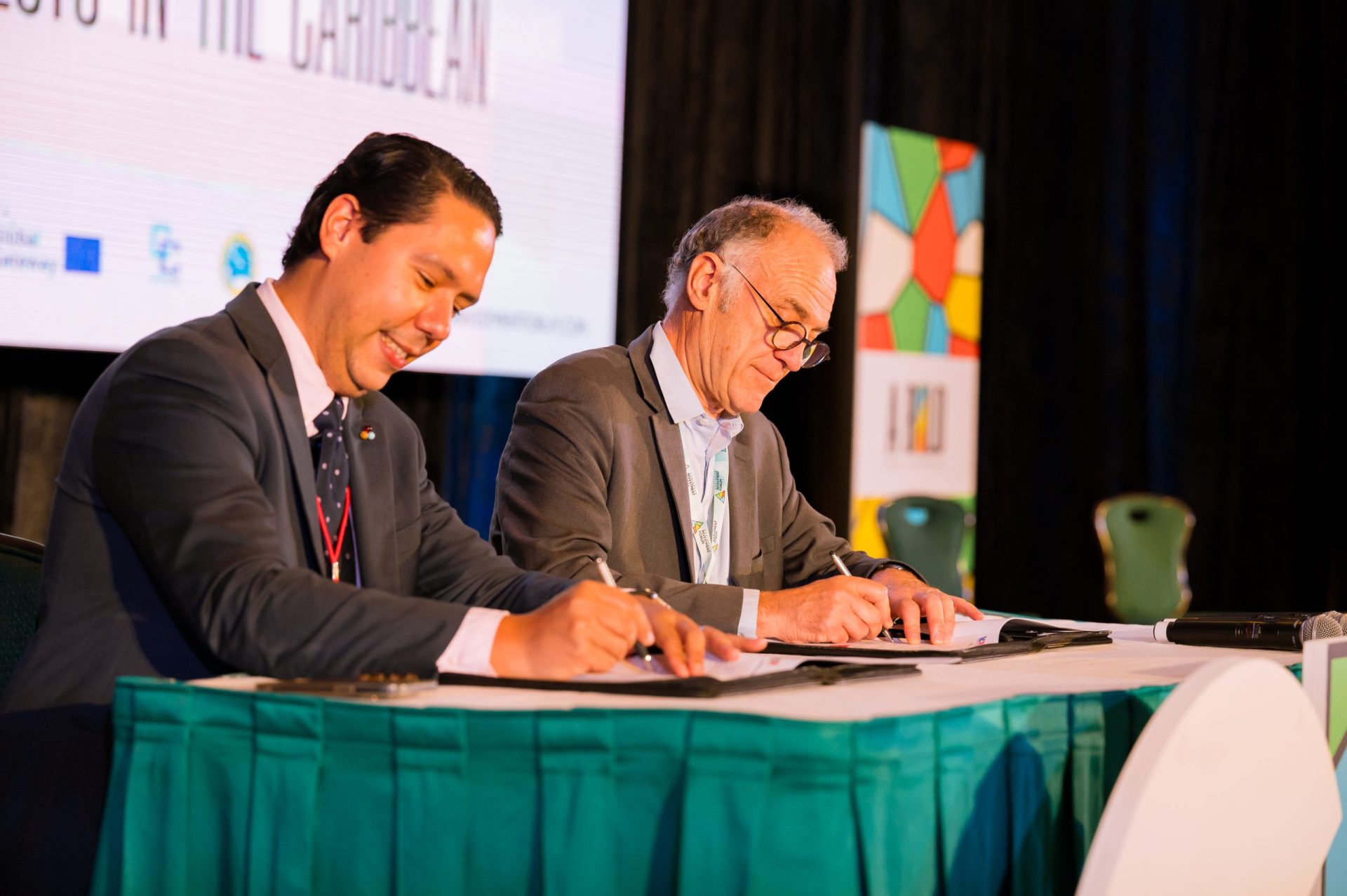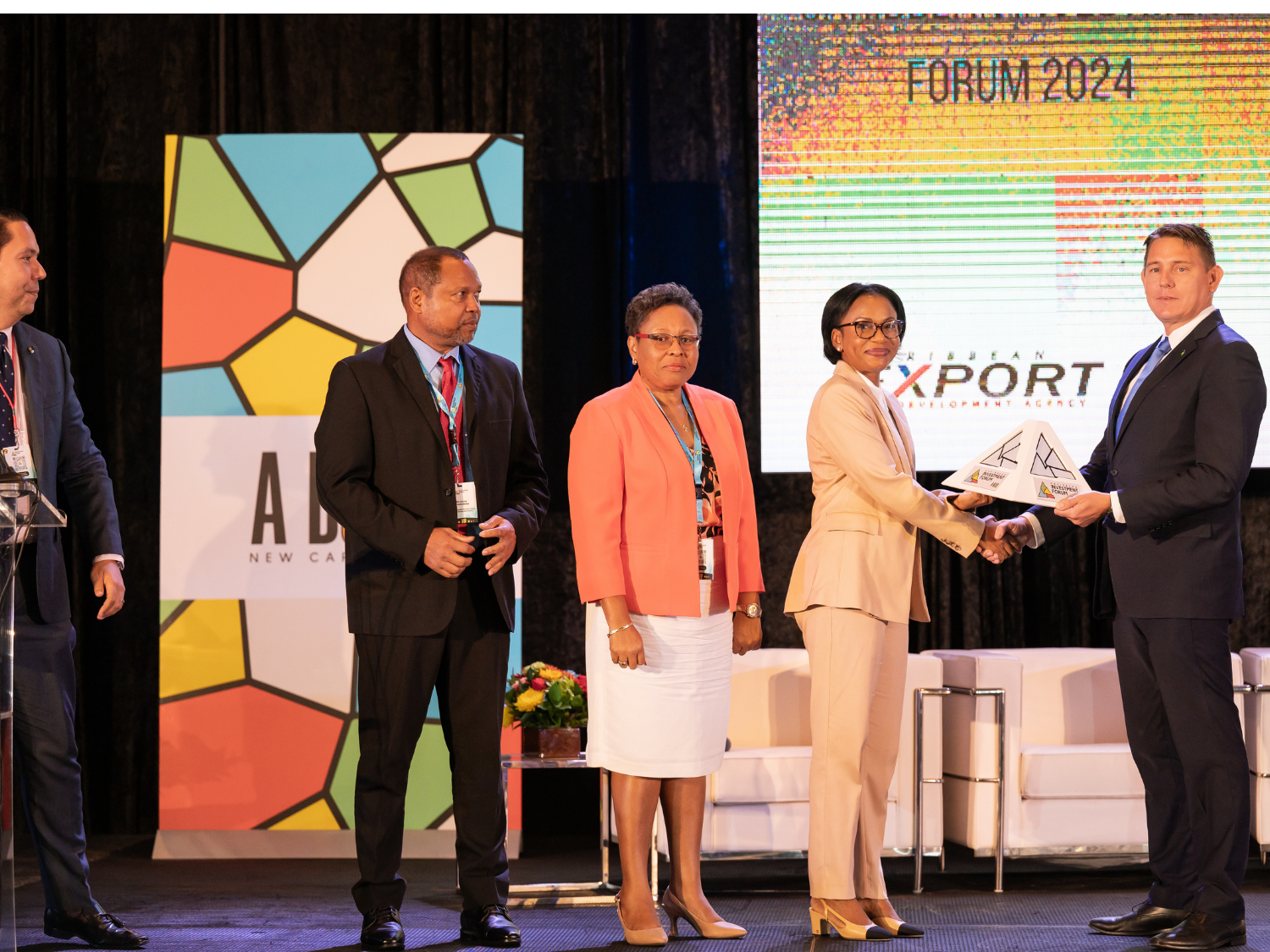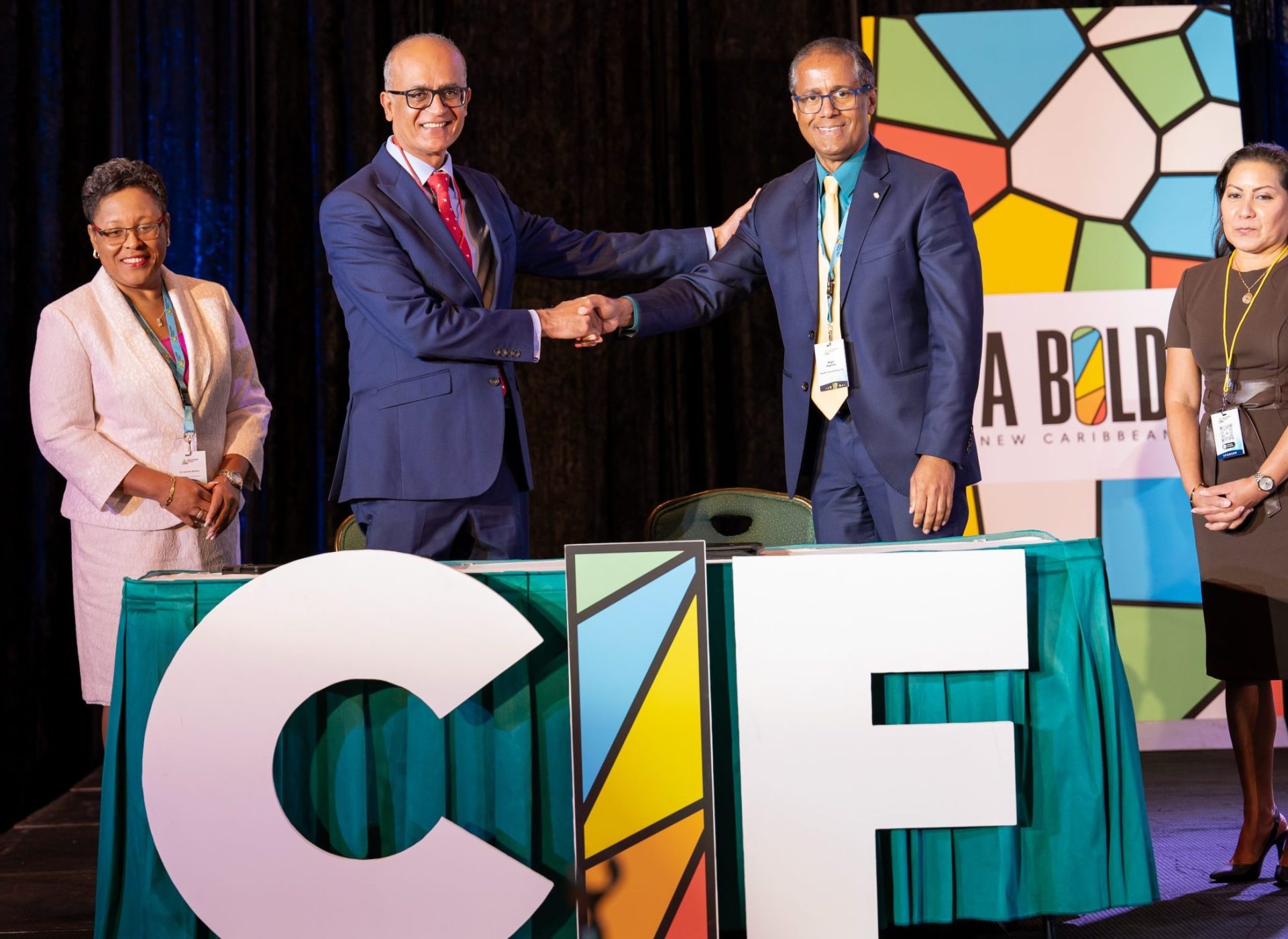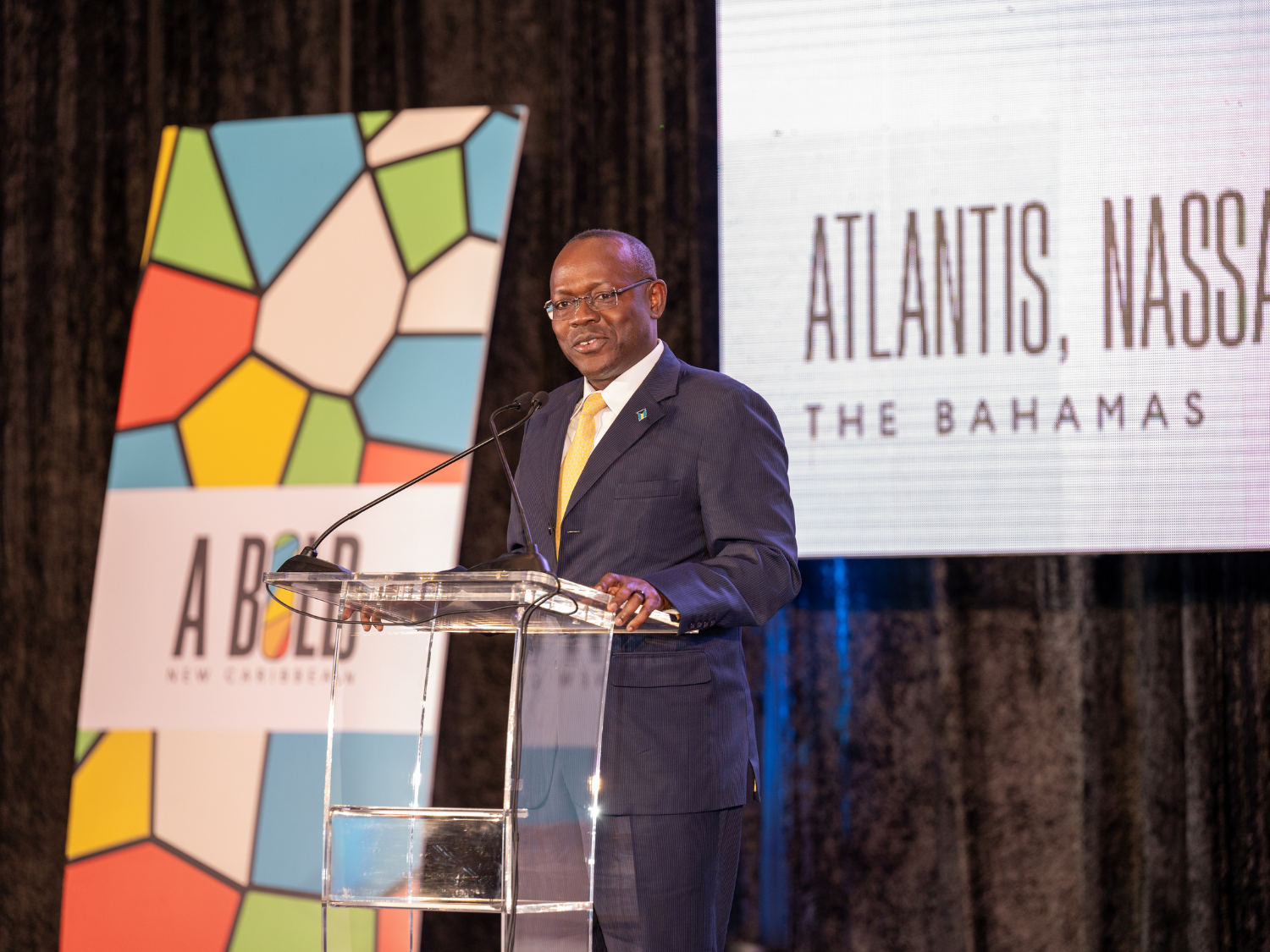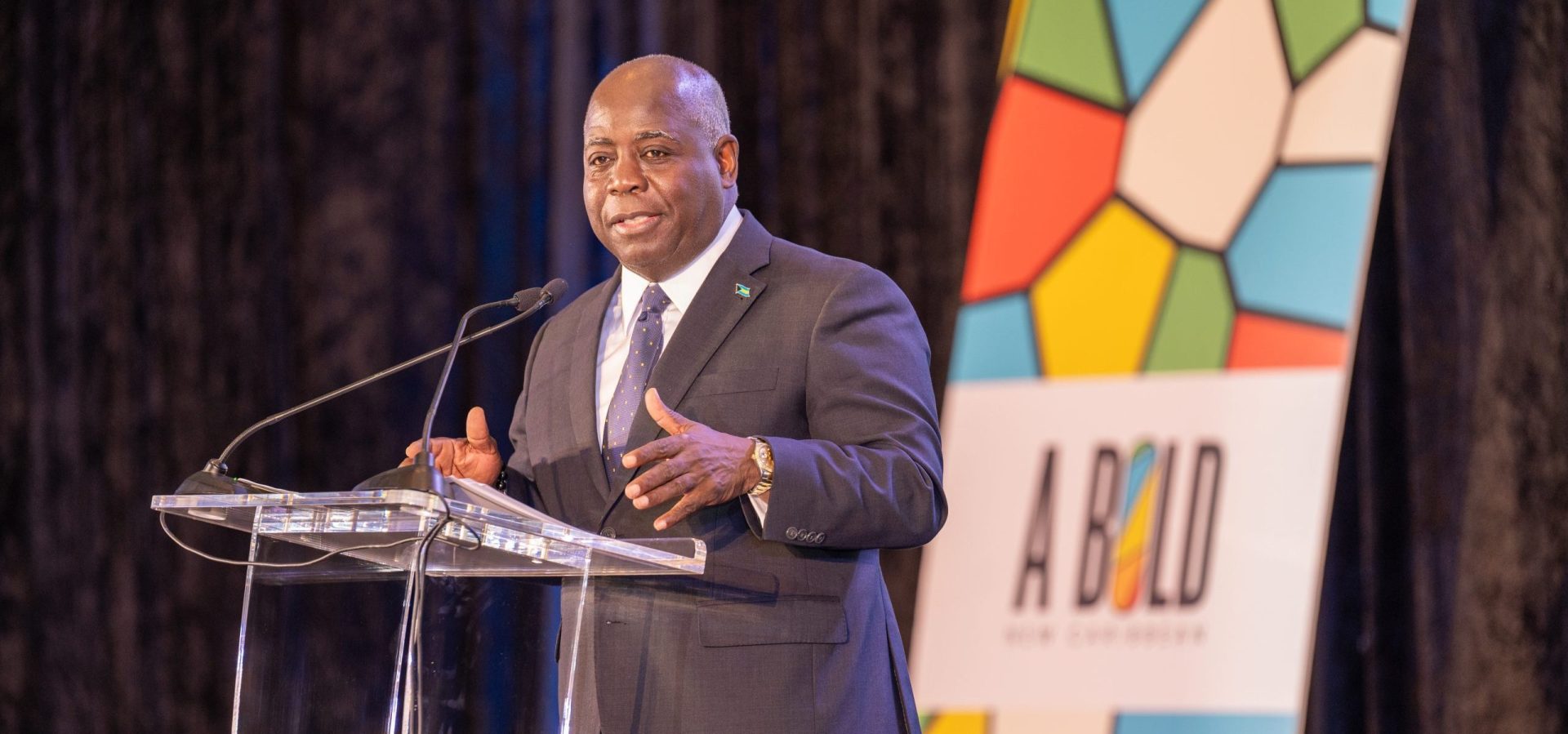- Caribbean Export’s ‘Annual Results Report – 2023’ released to partners and stakeholders.
- Over 300 regional firms received over $7.8m (US) in grants, Results Report – 2023 shows.
- Agency achieved a project implementation rate of 93% and helped create over 1,300 new jobs.
Millions of dollars in grants dispersed by the Caribbean Export Development Agency (Caribbean Export) have created jobs, increased exports, and furthered digitalization for over 1,000 regional micro-small-and medium-sized enterprises (MSMEs), as revealed in its ‘Annual Results Report – 2023’.
Caribbean Export released its third Annual Results Report at the Accra Beach Hotel and Spa on Wednesday, 10 April 2024 to an audience consisting of local, regional, and international stakeholders, diplomats, beneficiaries, Caribbean Export employees, and the media.
The report outlined how the region’s premier trade and investment promotion agency has continued to focus on a transformational agenda to boost regional economies, with a particular push towards enhancing the adaptive capability and competitiveness of regional MSMEs so that they can stand out in the global marketplace.
Caribbean Export’s outgoing Executive Director, Deodat Maharaj, lauded the agency’s achievements in 2023 which included a 93% project implementation rate. He outlined how the agency’s ongoing commitment to “delivering results” has directly assisted over 1,000 Caribbean business professionals via grant funding alongside training, workshops, investment forums, and support to attend international tradeshows.
Mr Maharaj said: “Caribbean Export is not a flavour of the month organisation. We are staying true to our mission, values, and vision, and focusing on sectors that are driving transformation, innovation, digitalization, and technology.”
He added that the Agency and its financial partners which include the European Union, the Caribbean Development Bank, and the Inter-American Development Bank, remain committed to practically supporting the private sector especially MSMEs, which account for 55-60% of the region’s Gross Domestic Product and nearly 70% of its total employment.
Barbados’ Minister of Foreign Affairs and Foreign Trade, Kerrie Symmonds, praised Caribbean Export for its significant achievements in 2023. However, he suggested that more work needs to be done, especially by regional governments, to make it easier for businesses to export within and outside the Caribbean.
Mr Symmonds said: “What we have seen here is the beginning of building the capacity of our region’s business people to be able, not only to move across borders within this region, and the CARIFORUM marketplace, but to go into Europe as well and that is an ambition whose time has come but we have to redouble our efforts…
“In this regard, I believe that Caribbean Export is doing an excellent job in mobilising the private sector and working with us [government] to build a more productive and competitive private sector.”
During a panel discussion at the event, beneficiaries and regional organisations who have partnered with Caribbean Export spoke about the enduring impact of the Agency’s dynamic programmes. Jo Edghill, Managing Director at Megapower, explained how funds from Caribbean Export’s Direct Assistance Grant Scheme gave the business the opportunity to expand and eventually create Barbados’ first battery re-use laboratory.
Head of Cooperation, Delegation of the EU to Barbados, the Eastern Caribbean, OECS, and CARICOM / CARIFORUM, David Mogollan, reiterated the bloc’s unwavering support for Caribbean Export’s work. Between 2017 and 2023, the EU invested over €27.5m (EUROS) in grants through the 11th European Development Fund Regional Private Sector Development Programme which ended in September 2023.
Mr Mogollan confirmed the EU’s faith in Caribbean Export as a reliable implementation partner with continued funding offered via the EU’s Global Gateway project.
Chairperson of Caribbean Export’s Board of Directors, Dr Lynette Holder, underscored the diverse nature of the Agency’s intervention programmes in 2023, including the second iteration of the highly-successful Caribbean Investment Forum (CIF) which was held in The Bahamas in October and attracted over 545 delegates from 46 countries. CIF 2024 will take place in Guyana from 10-12 July.
Dr Holder said: “CIF 2023 emerged as a global investment hub attracting over 40 investors, ranging from angel investors to debt financiers and showcasing a wide array of financing options. This underscores CIF’s pivotal role as a premier platform for investment and financial collaboration across diverse sectors.”
She stated that Caribbean Export’s board of directors remain “confident in the Agency’s continuous role as an indispensable partner for the private sector, providing innovative and strategic support tiered to the dynamic needs of our member countries.”
